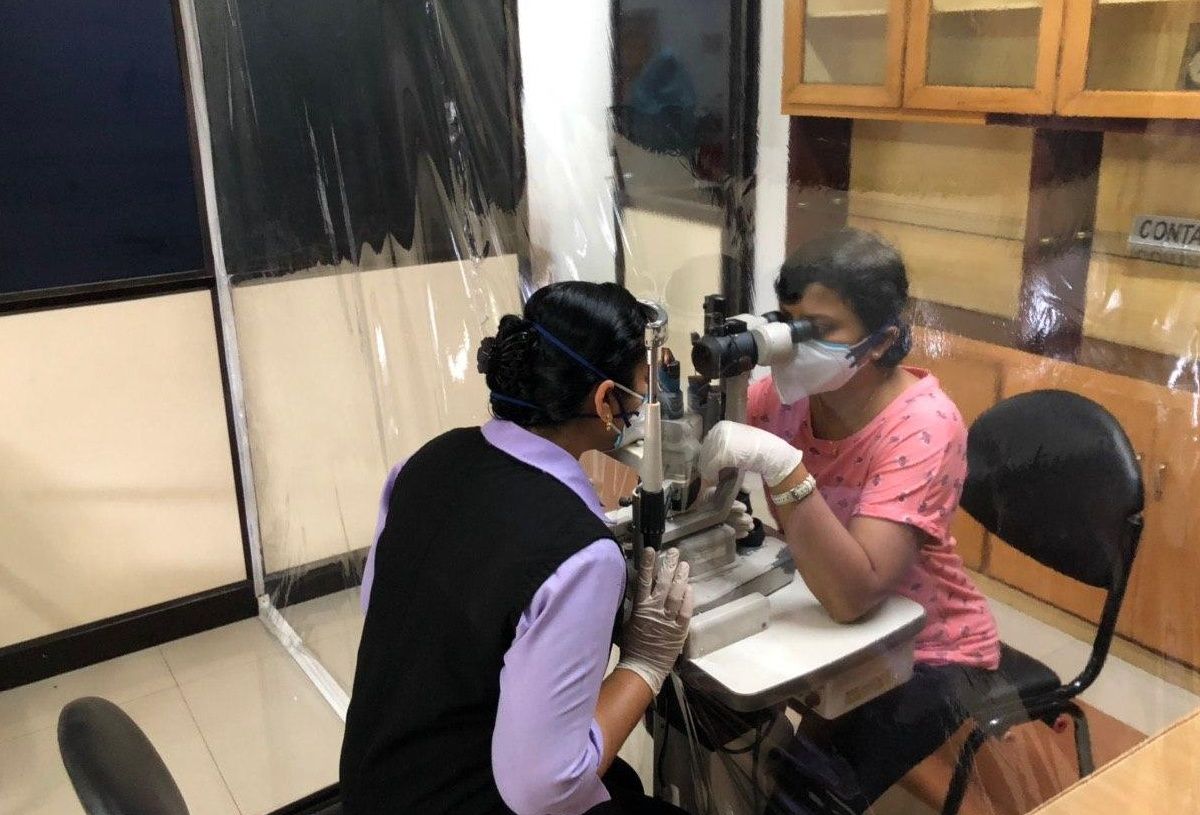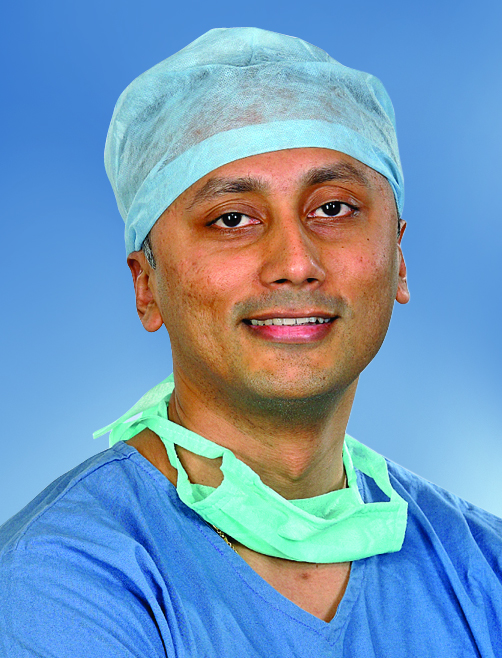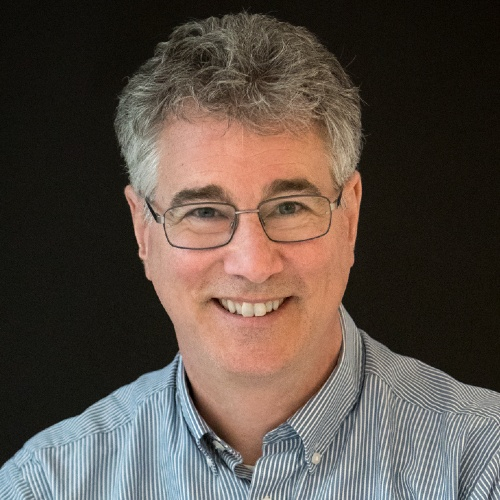During pandemic, Olin EMBA doc protects patients and saves cost with innovation at his eye clinic
- June 2, 2020
- By Kurt Greenbaum
- 2 minute read

Three days after Dr. Ashley Jacob complied with public health regulations and shuttered his eye clinic, he petitioned to reopen.
The need for emergency ophthalmology assistance continued, even with the quarantine, as neighbors in the Indian state of Kerala occupied themselves by clearing brush, gardening and staring into screens.

Then the WashU Olin EMBA alum confronted another problem. His patients only pay about 100 rupees—about $1.32—for their emergency eye exams. Yet he and his staff were spending 33 times as much to don the face shields, masks, gloves and gowns the new coronavirus-inspired safety protocols demanded.
That was in late March. At his emergency eye clinic, the only one in the southwestern edge of India at the time, he was seeing 50 patients a day and the cost was adding up.
“I was thinking, ‘What can I do about this?’” recalled Jacob, EMBA ’17. “I have to see the patient’s eyes and the solution has to be reasonably good optical quality.”
The solution turned out to be available at a local hardware store: A large clear plastic sheet that he could buy for about $33. Bolted and glued to the floor, ceiling and walls, the sheet divides his examination rooms in half. A patient sits on one side of the divide while Jacob’s technicians aim their examination equipment through the barrier into the patient’s eyes.
“This is frugal engineering,” said Jacob, who used the Indian word juggad—a cheap workaround—to describe his innovation. In other words, he “MacGyvered” it.
“We have tested it. Nothing passes through,” Jacob said. “We fumigate the whole thing after a patient visits. That is an operation room protocol. What is done on the operating table is being done in this room.”
He said the patients seem to be delighted with the solution as well because they don’t want to do anything to endanger the health of their healthcare providers. Jacob has shared what he’s done with doctors at other eye clinics around the country now that more of them are allowed to open.
“Many have started implementing this,” he said. “Many had not opened their clinics because of the expense.”
Pictured above: One of Dr. Jacob’s assistants examines a patient’s eyes through the plastic barrier he had installed.
Media inquiries
For assistance with media inquiries and to find faculty experts, please contact Washington University Marketing & Communications.
Monday–Friday, 8:30 to 5 p.m.
Sara Savat
Senior News Director, Business and Social Sciences
